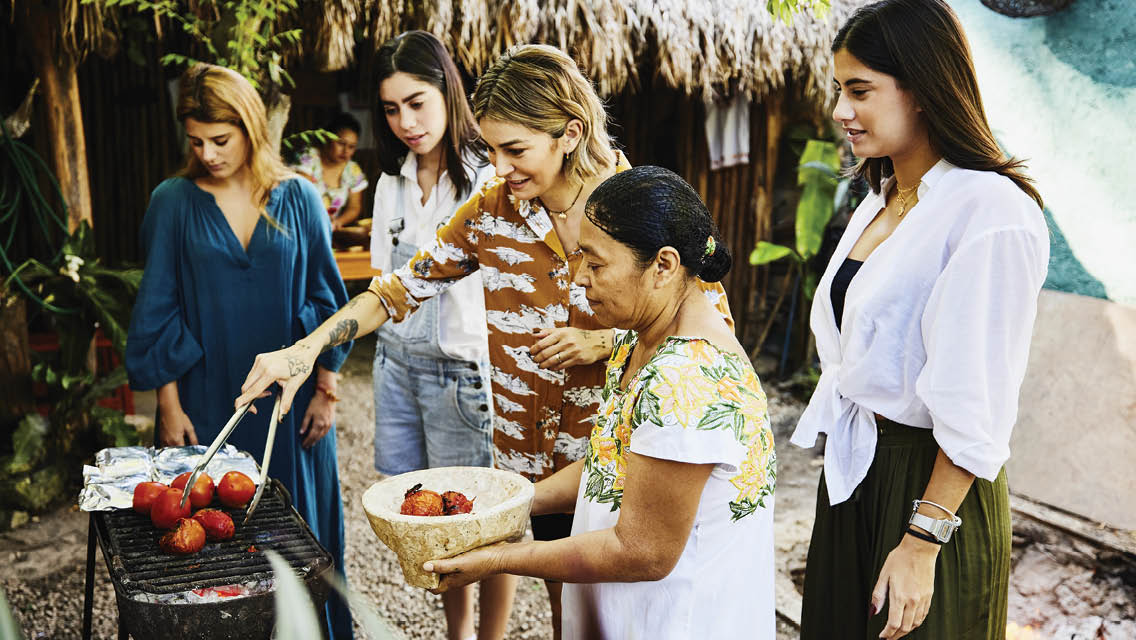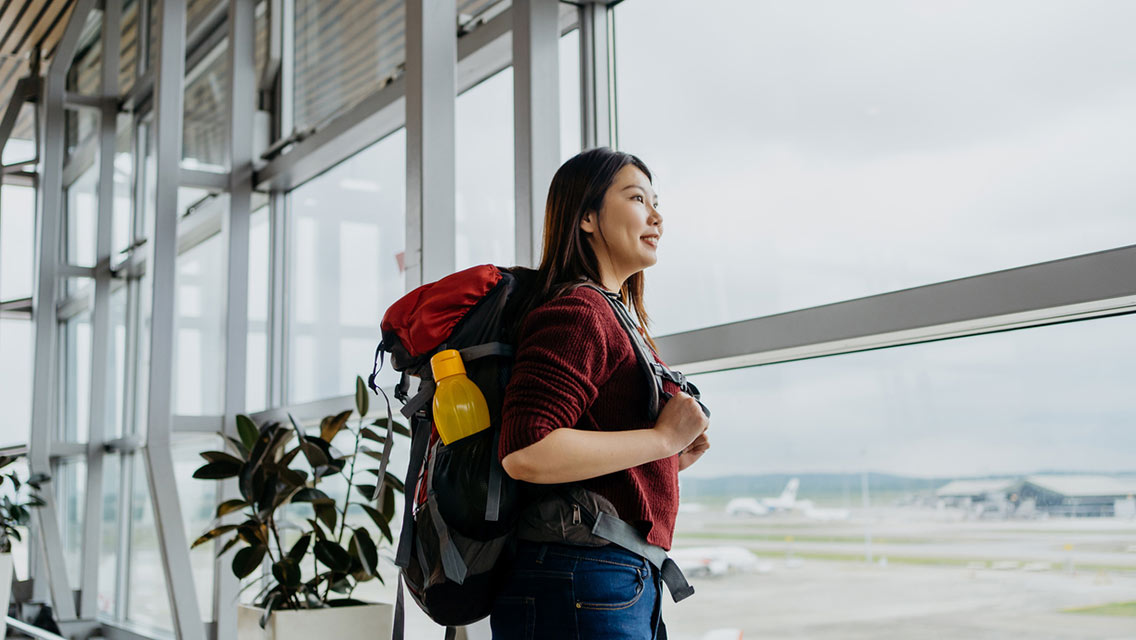Visiting wildlife in the Galápagos Islands taught me a lot of things, including how to be a courteous guest. On our first day, our guide explained that we would be able to observe blue-footed boobies, giant tortoises, Sally Lightfoot crabs, and marine iguanas up close in their natural habitats — but only because these creatures have evolved without predators and didn’t fear humans.
There was a strict code of conduct: No food was allowed, and we had to stay at least six feet away from all wildlife, even when a curious sea lion pup chased us on the beach.
Using the principles of “leave no trace” can be another useful code of conduct:
- Don’t litter.
- Carry a reusable water bottle.
- Show consideration to others, whether they’re locals, wildlife, or fellow travelers.
- Be sure to learn some basic phrases in the local language (especially “please” and “thank you”), and familiarize yourself with local customs.
A little self-awareness goes a long way too. Travel is inherently unpredictable, and it helps to cultivate some patience and flexibility on the road. Jeff Greenwald, cofounder and director of EthicalTraveler.org, emphasizes the importance of curbing anger and cultivating a sense of humor.
“Anger is a real issue for Westerners,” he notes. “And it never earns the respect of locals or defuses a bad situation.”
“We live in an individualized culture that doesn’t teach us to pay close attention to other people’s lives. Conscious travel is about unraveling some of that individualism. Take a pause to notice: I’m not the only one whose life might be challenging.”
He recommends practicing humility. When you’re a guest in someone else’s home, listen to what others have to say before you speak. If you do express an opinion, resist the temptation to present it as the absolute truth. Phrases like “I believe” or “my view is” show respect for the other person’s point of view, which may be very different from yours.
A good guest also respects the dignity of those they encounter. Travel can often bring us eye to eye with the world’s inequities, and witnessing unfamiliar levels of poverty can be uncomfortable. But rather than reacting with guilt or pity, Anu Taranath, PhD, and author of Beyond Guilt Trips: Mindful Travel in an Unequal World, suggests focusing on what we all have in common.
“We live in an individualized culture that doesn’t teach us to pay close attention to other people’s lives. Conscious travel is about unraveling some of that individualism,” she says. “Take a pause to notice: I’m not the only one whose life might be challenging.
“When meeting people who seem unlike you, try moving toward the notion that My life and your life might not overlap often, but we’re actually connected in some surprising ways.”
This was excerpted from “5 Strategies for Becoming a More Conscious Traveler” which was published in Experience Life.





This Post Has 0 Comments